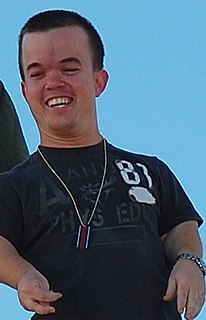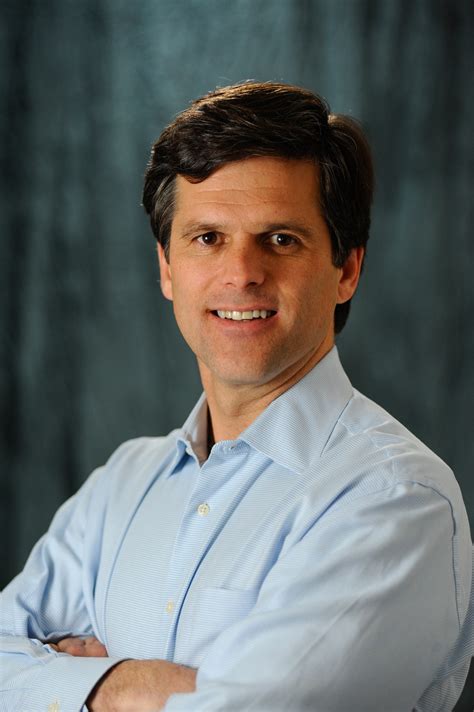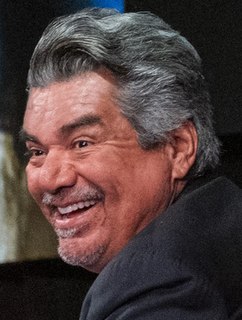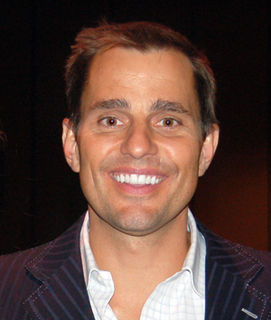A Quote by Minoru Yamasaki
I feel this is very important for us to have serene buildings because our civilization is chaotic as it is, you see; our whole machine age has brought about a chaos that has to be somehow counterbalanced, I think.
Related Quotes
What I feel I can do is help people become aware of how pervasive and extensive the arts are, how they affect each one of us in our daily lives—what kind of [buildings] we live in, what kind of clothes we wear, what we see with our eyes. We are often blind to the beautiful things around us. What I'm mostly concerned about is how often we're blind to our own talent. I think that within each human being there is a creative spirit, and some of us have been fortunate enough to have good teachers and parents who've brought this out and encouraged it, but others haven't.
The personal boundaries, I think for comedians they're a little bit different anyway, but I think people - feel free to do stuff - It's interesting with comedians because when we walk on stage, oftentimes we're talking about ourselves for an hour and we're talking about very intimate details, so after hearing us for an hour, a lot of people feel very comfortable with us because they feel like they know us and they're our friends because we just told them our innermost secrets and details of our lives for an hour. What they forget is we know absolutely nothing about the audience.
We are somehow the children of the planet, we are somehow its finest hour; we bind time, we bind the past, we anticipate the future - we are going hyper-spatial; we are claiming a whole new dimension for biology that it never claimed before. We are actually becoming a fourth-dimensional kind of creature. Our future is somehow with us, as we seem to be able to move through metamorphosis into our own imaginations - a super civilization spread throughout space and time. Our future is a mystery, our destiny is to live in the imagination.
There was a time in our past when one could walk down any street and be surrounded by harmonious buildings. Such a street wasn't perfect, it wasn't necessarily even pretty, but it was alive. The old buildings smiled, while our new buildings are faceless. The old buildings sang, while the buildings of our age have no music in them.
I think green buildings are extremely important but it's only part of the equation. A lot of people think that if I put a green building everything is going to be fine, but actually it's not just the green buildings we need, but green businesses, green governments, green economics. We have to extend the greening of buildings to our business and our lifestyles - that is the most important thing to do next.
I think it's easier for African American and white comics to be praised than it is Latinos because they think our culture or our humor is substandard. I mean, I just don't think they want to give us credit. I just don't think that they see us as important enough to be at their level. I'm the longest-produced comedy at Warner Bros. and I don't feel special. They come over and say hello. But everybody's gonna make a lot of money and I don't feel like I'm special to them.
These days, more than any other time, we are worried about our personal life, our private life. When we talk about our private life, it means our home, our body even. It seems that when we want to have calmness in this world, we make a wall around us. This gives us a very calm environment, and when we feel that somebody is intruding into that, it makes us very angry and we feel we have to do something about it.
As agonizing a disease as cancer is, I do not think it can be said that our civilization is threatened by it. ... But a very plausible case can be made that our civilization is fundamentally threatened by the lack of adequate fertility control. Exponential increases of population will dominate any arithmetic increases, even those brought about by heroic technological initiatives, in the availability of food and resources, as Malthus long ago realized.
We should be most careful about retreating from the specific challenge of our age. We should be reluctant to turn our back upon the frontier of this epoch... We cannot be indifferent to space, because the grand slow march of our intelligence has brought us, in our generation, to a point from which we can explore and understand and utilize it. To turn back now would be to deny our history, our capabilities.
I'm always looking to find order within the chaos. And sometimes when my life gets fairly chaotic, I'll take a walk outside. I think about the order and the perfection of galaxies of planets in orbit and traveling around space and thinking how chaotic the wars and divorces and riots on our planet must look from outer space.
When we think that the machine will harm man, then it is perhaps because we are not yet capable of judging the rapid changes it has brought about. We hardly feel at home in this landscape of mines and power stations. We have just moved into this new home that we have not even finished yet. Everything around us has changed so fast - personal relations, working conditions, habits. Even our state of mind is in turmoil.
The aggressive incoherence of our common surroundings can be described as entropy made visible. The way we have disposed things on the landscape leads us in the direction of disorder and death. They are categorically evil. These dispositions are destroying our only home-planet and other organisms that share it. They defeat our need to care about where we are and the things in place there. They prompt us to feel that civilization is not worth carrying on. They rob us of our identity and our will to live. These things are not about personal taste or style.
A whole lot of us go through life assuming that we are basically right, basically all the time, about basically everything: about our political and intellectual convictions, our religious and moral beliefs, our assessments of other people, our memories, our grasp of facts. As absurd as it sounds when we stop to think about it, our steady state seems to be one of unconsciously assuming that we are very close to omniscient.








































